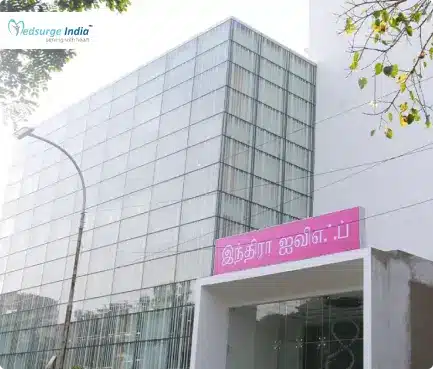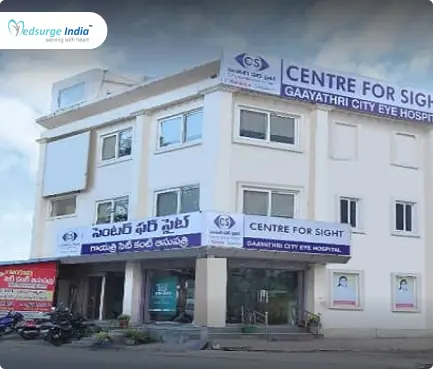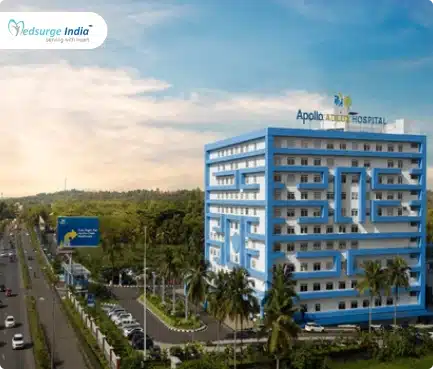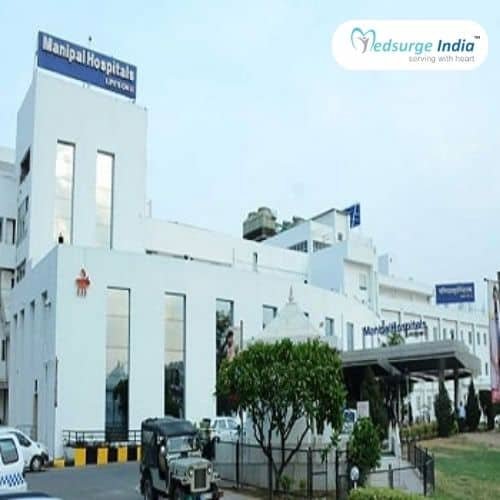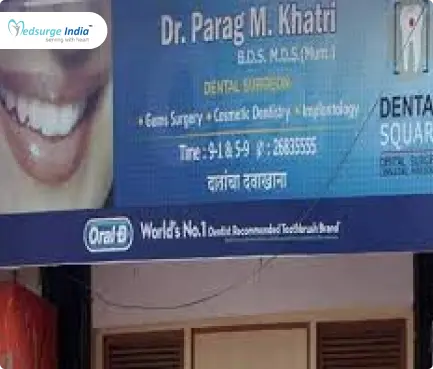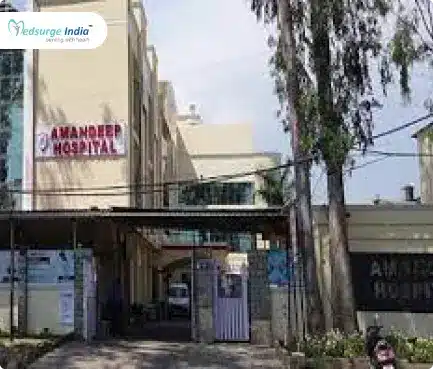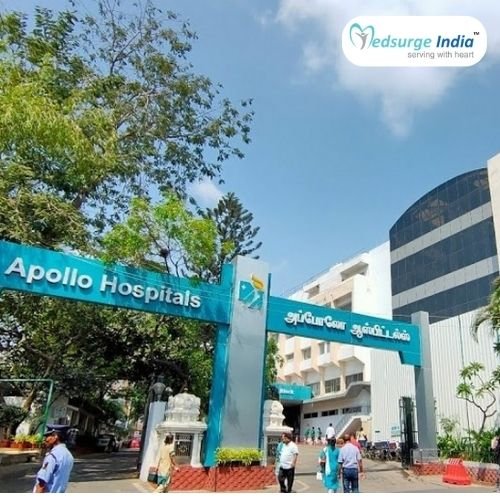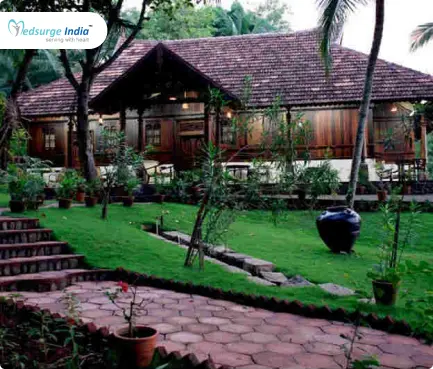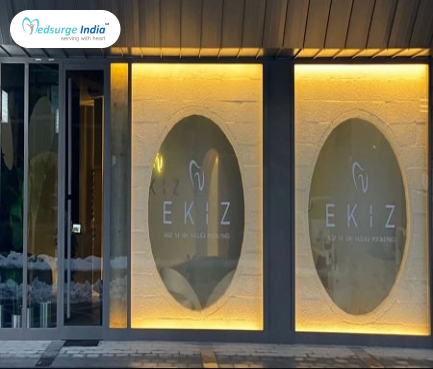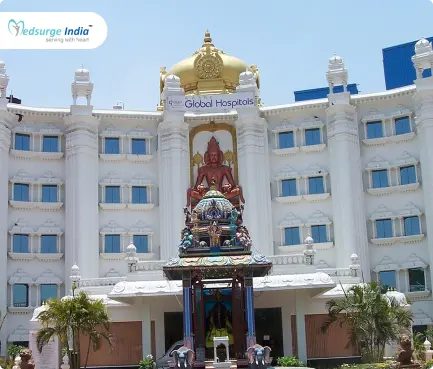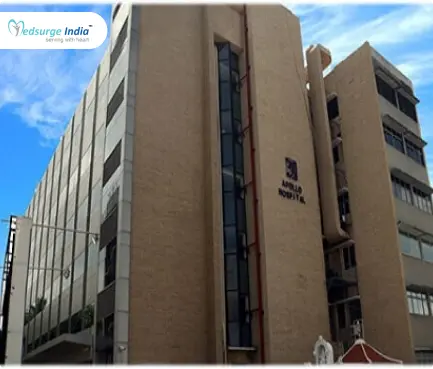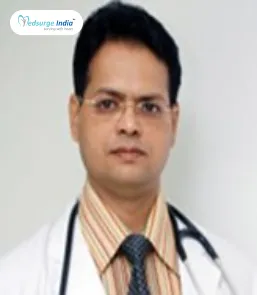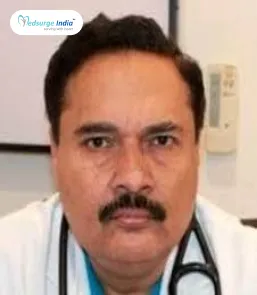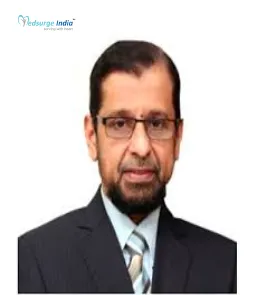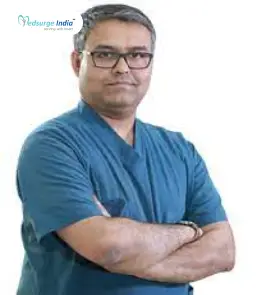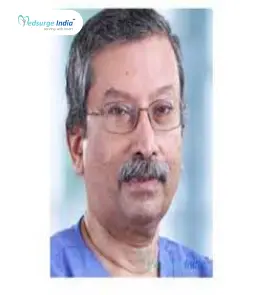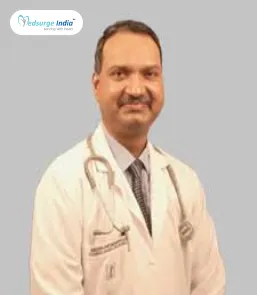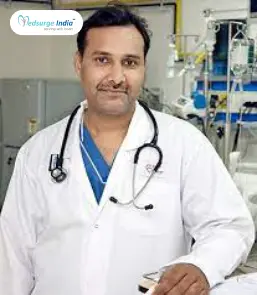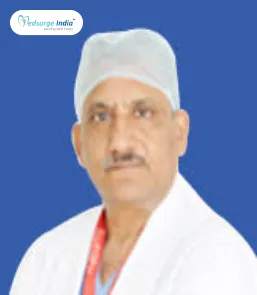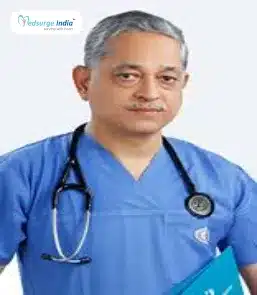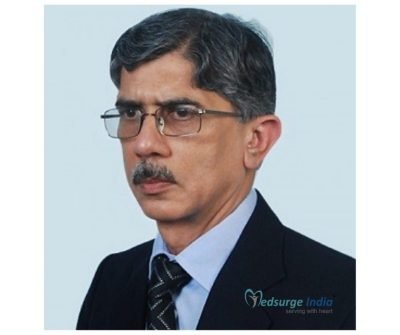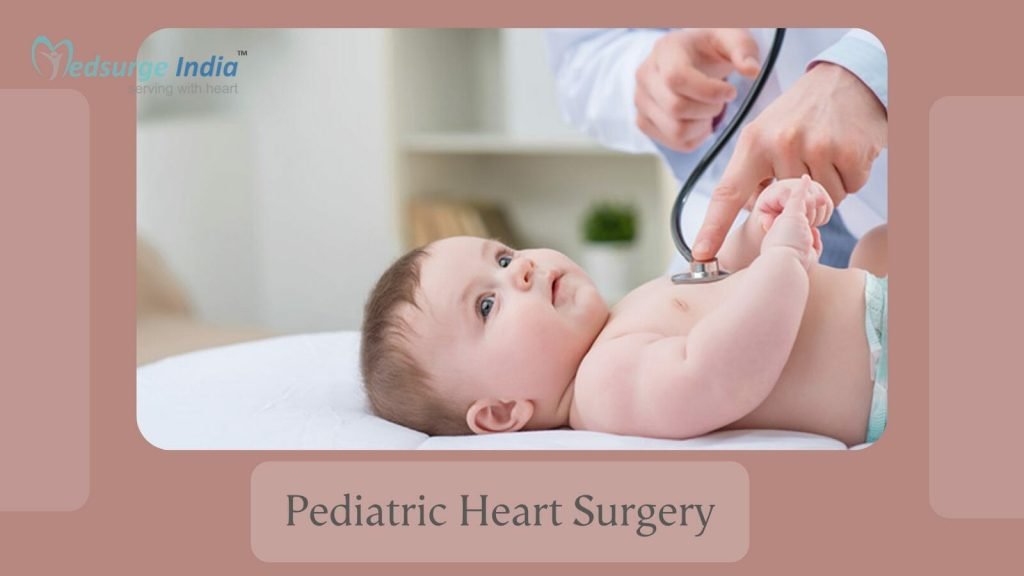
Pediatric heart surgery is performed to correct heart problems that are present at birth (congenital heart defects) as well as cardiac disorders that develop after birth and require surgery. The operation is necessary for the child’s health.
Heart problems come in a variety of shapes and sizes. There are some that are small and others that are more significant. Defects in the heart or big blood arteries outside the heart are also possible. Some cardiac abnormalities may necessitate surgery soon after birth. Others, on the other hand, maybe able to comfortably wait weeks, months, or even years for surgery.
A single surgery may be sufficient to correct the heart abnormality, but a series of treatments may be required in some cases.
What Is Pediatric Heart Surgery?
Cardiac surgery for children with congenital heart abnormalities is known as pediatric cardiac surgery. These congenital heart defects, affect the walls as well as valves of the heart, and the arteries and veins near the heart. It can have an impact on a child’s growth and development if they are not corrected. They have the ability to interfere with the heart’s natural blood circulation. As a result, if a child has a complex cardiac defect, the pediatric heart surgeon may recommend Pediatric Heart Surgery.
Symptoms That May Indicate That You Require Pediatric Cardiac Surgery
Depending on the course and severity of the heart problem in a kid, the symptoms of Congenital Heart Defect that may lead to Pediatric Cardiac Surgery can range from minor to severe. The major indicators that a child may require Pediatric Heart Surgery appear at birth or within a few weeks of birth. They are as follows:
- Skin that is pale grey or blue in color.
- Breathing quickly
- Swelling of the legs, abdomen, or eyelids
- Shortness of breath during meals, resulting in inadequate weight gain
Less serious Congenital Heart Defects, on the other hand, may not show symptoms until the child is considerably older. These signs and symptoms might include:
- Breathlessness after exercising and other physical activity
- Light activity and moderate exertion
- During physical exertion or exercise, you may get fainting spells.
- Hand, ankle, or foot swelling
Pediatric Heart Surgery Cost In India
The average Pediatric Heart Surgery Cost in India starts from USD 3900. Pediatric heart surgery cost in India vary according to many criteria, such as the facility, the surgeon’s fee, the intricacy of the procedure, and the health status of the patient.
Different types of treatment for pediatric heart surgery cost in India
| Treatments | Starting Price |
| Balloon Atrial septostomy | USD 4000 |
| Patent Ductus Arteriosus (PDA) repair | USD 4500 |
| Balloon Pulmonary Valvuloplasty | USD 4000 |
| Balloon Angioplasty | USD 3800 |
| Tetralogy of Fallot Repair | USD 4200 |
| Ventricular Septal Defect (VSD) repair | USD 4100 |
| Atrial Septal Defect (ASD) repair | USD 4300 |
List of Prices in Different Parts of India
| Cities | Starting Price |
| Delhi | USD 3900 |
| Gurgaon | USD 3900 |
| Noida | USD 3900 |
| Mumbai | USD 4300 |
| Hyderabad | USD 4000 |
| Chennai | USD 4100 |
| Kolkata | USD 3900 |
| Bangalore | USD 4500 |
Please note that the pricing of the treatment will vary depending on various factors.
Factors That Can Affect Pediatric Heart Surgery Cost in India
The standard and excellence of medical treatment and amenities are comparable to those of the most prominent healthcare facilities in the world, even after deducting the cost of lodging, meals, and transportation. Here are some variables that can affect Pediatric Heart Surgery Cost in India:
- Medication costs.
- Duration of treatment.
- Geographical location.
- Hospitalization expenses.
- Government policies and subsidies.
- Medical tourism packages.
- Hospital reputation and infrastructure.
- The expertise and experience of medical professionals.
- The type and frequency of diagnostic procedures.
- The choice of treatment modality.
Under the direction of the most skilled physicians, Medsurge India provides the most economical Pediatric Heart Surgery Cost in India for foreign patients. These characteristics can aid patients and medical professionals in effectively negotiating and making decisions that suit their individual needs and preferences.
Pediatric Heart Surgery in India
Numerous pediatric cardiology surgeries are available, including Tetralogy of Fallot, Total Anomalous Pulmonary Venous Return, Double Outlet Right Ventricle, Ventricular Septal Defect and Atrial Septal Defect, Patent Ductus Arteriosus, and balloon atrial septostomy. Pediatric cardiac surgery may involve a range of surgical techniques for congenital heart defects, the most popular being:
Who Is the Best Candidate For Cardiac Surgery?
There are a number of factors that go into determining who is the best candidate for a specific cardiac surgery. Your pediatric cardiac surgeon may recommend surgery based on the severity of your heart disease. Pediatric heart surgery is reserved for serious congenital cardiac abnormalities, which include the following:
- Congenital abnormalities in the newborn are visible during the first few hours, days, weeks, or months following delivery, resulting in symptoms such as poor skin, erratic breathing patterns, and enlargement of the abdomen, eyes, or limbs.
- Heart abnormalities are sometimes detected as late as 20 years of age due to the lack of symptoms. They are frequently discovered by chance when diagnosing other symptoms. The longer we delay, the greater the risk of a child’s health deteriorating.
- Certain symptoms, such as swelling in the hands and ankles, constant weariness, and shortness of breath, necessitate a comprehensive examination and, if necessary, surgery.
Get Free Cost Estimation
Procedure
If not addressed promptly, a congenital cardiac abnormality can have serious consequences for a child’s health. Certain drugs may be used to address cardiac abnormalities that do not require intensive treatment. Pediatric Cardiac Surgery is used to address Congenital Heart Defects that may interfere with a child’s growth. Some Congenital Heart Defects are so severe that they may require immediate Pediatric Cardiac Surgery; otherwise, death may result. For Congenital Heart Defects, Pediatric Cardiac Surgery may encompass a variety of surgical methods, the most common of which are:
Catheterization Procedures
The doctor may use catheterization techniques to treat children and adults with Congenital Heart Defects in some Pediatric Heart Surgery procedures. Catheterization is a minimally invasive Pediatric Cardiac Surgery method for repairing holes, valves, and constricted arteries in the heart. This is done by putting a tiny tube-like instrument called a catheter into a vein in the leg and using X-ray images to guide the doctor to the heart. Once the catheter reaches the problem location, small tools are implanted to fix the heart defect in this Pediatric Cardiac Surgery.
Open-Heart Surgery
Depending on your child’s health, open-heart surgery may be the preferred kind of Pediatric Cardiac Surgery. This means that a non-invasive method cannot be used to fix the heart problem. The doctor may operate on the heart defect while the child’s body is connected to an artificial heart-lung system.
Heart Transplant
If both of the previously mentioned Pediatric Cardiac Surgery treatments have failed or are unable to repair the abnormality, the pediatric cardiac surgeon may recommend a heart transplant as the primary Pediatric Cardiac Surgery alternative.
After the Procedure
The majority of children who undergo open-heart surgery must spend two to four days in the intensive care unit (ICU) following surgery. After they leave the ICU, they usually stay in the hospital for another 5 to 7 days. Closed-heart surgery patients frequently have shorter stays in the intensive care unit and the hospital. Your child may need to stay in the hospital for weeks or months after more complex cardiac surgery.
Conclusion
Neonatology, cardiology, cardiac anesthesia, intensive care, nursing, social work, and respiratory therapy professionals make up the pediatric heart surgeons’ team. These teams have received significant training in order to offer your child the best medical care possible before, during, and after surgery. The best pediatric cardiologists in India will have a full conversation about your child’s options and outcomes. You can trust that they will provide you with the greatest options so that you can choose the best treatment for your child.
The Most Important Frequently Asked Questions
Q: When a Child Has Open-Heart Surgery, How Long Does It Take for Them to Recover?
A: Your youngster will require at least three to four weeks at home to heal. Larger procedures may take 6 to 8 weeks to recuperate from. Consult your child’s health care practitioner to determine when he or she can return to school, daycare, or sports.
Q: After Heart Surgery, How Long Does a Baby Stay in the Hospital?
A: The majority of children who undergo open-heart surgery must spend two to four days in the intensive care unit (ICU) following surgery. After they leave the ICU, they usually stay in the hospital for another 5 to 7 days.
Q: Is Open Heart Surgery Painful?
A: In most cases, open-heart surgery is not an unpleasant procedure. The removal of the drainage tubes, which is usually done on the first post-operative day, is one significant exception. It may feel strange at first, and it might be a source of pain for a short period of time. When you cough, laugh or sneeze, it will make you feel uneasy.
Q: How Do You Sleep After Open-Heart Surgery?
A: Sleeping on your back, side, or stomach is fine. Your incisions will not be harmed.
Insomnia (inability to sleep) can be caused by a variety of factors, including:
- Anesthesia’s side effects.
- Discomfort is caused by the healing process.
- alterations in your daily routine
- Personal worries cause stress.
Q: Why Do They Give You a Pillow After Heart Surgery?
A: When a patient presses the heart pillow against his or her chest, an extra layer of pressure is applied to prevent any jolting caused by coughing, sneezing, or movement. It helps to minimize pain by securely holding the incision and the delicate skin around it in place.
Top Hospitals for Pediatric Heart Surgery in India
Top Doctors for Cardiology And Cardiac Surgery
Dr. P. Padmakumar
Consultant
Experience: 31 years of experience
Manipal Hospital (Old Airport Road) Bangalore
Bangalore, India
Dr. Purshotam Lal
Chairman
Experience: 43 years of experience
Metro Hospital and Heart Institute, Noida
New Delhi, India
Dr. Niraj Kumar
Senior Consultant
Experience: 15 years of experience
Max Super Specialty Hospital Gurgaon
Gurgaon, India
Dr. Shailender Singh
Senior Consultant
Experience: 34 years of experience
KIMS Sunshine Hospitals, Begumpet
Hyderabad, India
Dr. Anup Charles Steven
Consultant
Experience: 11 years of experience
Aster CMI Hospital (Hebbel) Bangalore
Bangalore, India
Dr. O.P. Tucker
Senior Consultant
Experience: 9 years of experience
Batra Hospital & Medical Research Centre, New Delhi
New Delhi, India
Dr. Prabhakar C Koregol
Consultant DM, MD, MBBS
Experience: 19 years of experience
Fortis Hospital, Bangalore (Cunningham Road)
Bangalore, India
Dr. Sanjeev S Mukherjee
Consultant
Experience: 20 years of experience
Medica Superspecialty Hospital
Kolkata, India
Dr. Bhuvnesh Kumar Aggarwal
Principal Consultant
Experience: 31 years of experience
Medanta – The Medicity, Gurgaon
Gurgaon, India
Dr. Ganesh Shivnani
Consultant
Experience: 25 years of experience
Sir Ganga Ram Hospital, New Delhi
New Delhi, India
Dr. Ranjan Shetty
Consultant
Experience: 18 years of experience
Manipal Hospital (Old Airport Road) Bangalore, India
Bangalore
Dr. Krishna S Iyer
Director MBBS, MS, MCh
Experience: 31 years of experience
Fortis Escorts Heart Institute, New Delhi
New Delhi, India

